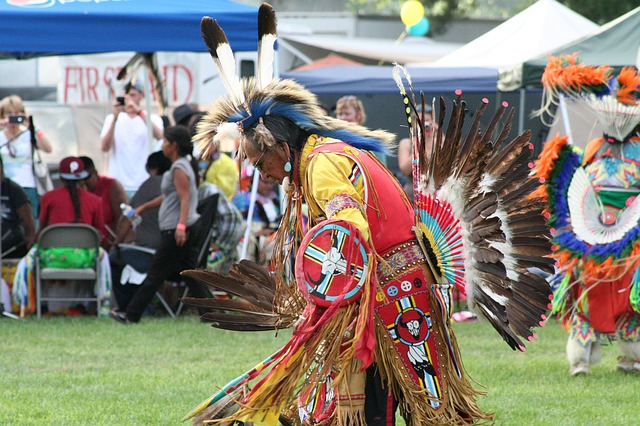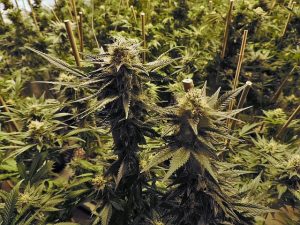Native American tribes can legally grow and sell marijuana, even in states where it is considered illegal. This is a result of the Depart of Justice’s 2014 move to stop US attorneys from prosecuting Native American tribes that grow and sell cannabis on reservations.
Native Americans are a sovereign nation, meaning their tribes have the power to govern themselves like states do. That is why they can have marijuana resorts in states where it is illegal to cultivate and sell marijuana.
The Santee Sioux Tribe
The Santee Sioux tribe was the first to begin growing marijuana in an integrated operation for selling. The tribe of 400 planned to marijuana profits for housing, a clinic, and addiction treatments.
The tribe is located in South Dakota, where cannabis is illegal. After the tribes first weed crops began to grow they voted to suspend their marijuana operation.
The tribe was turning a former bowling alley into a marijuana dispensary and lounge but had to halt their plans after receiving heat from state officials.
Attorney General Marty Jackley said that any changes to the tribal law would only affect tribal members, meaning any tourists or non-tribal members smoking pot on tribal land still risked prosecution. The same goes for anyone returning to state land with marijuana in their system.
“After government-to-government consultation with the United States, the Flandreau Santee Sioux Tribe is temporarily suspending its cannabis cultivation and distribution facilities.
This suspension is pivotal to the continued success of the marijuana venture, and Tribal leadership is confident that after seeking clarification from the United States Department of Justice, it will be better suited to succeed.
The Tribe will continue to consult with the federal and state governments, and hopes to be granted parity with states that have legalized pot. The Tribe intends to successfully participate in the marijuana industry, and Tribal leadership in undaunted by this brief sidestep.”
The tribe then burned their first marijuana crops to remain on good terms with the federal government. Apparently, sources shared with the tribal officials that Feds were going to raid their operation in exactly two week.
A tribe in California was raided and had 12,000 cannabis plants seized, crumbling their entire operation. The Santee Sioux tribe is likely attempting to avoid a similar fate.
Confederated Tribes of Warm Springs
The members of the Confederated Tribes of Warm Springs, approved a plant to build a facility on their reservation in central Oregon late last year.
“Our main purpose is to create jobs on the reservation and produce revenue for the tribes,” said Don Sampson of the tribes’ economic development corporation. “We think we will have a model other tribes will look to as they investigate this business and industry.”
Legal pot sales in Oregon have only begun this year so we’ll have to wait and see if the tribes makes the $26 million in revenue estimated by the end of this year.
The Final Hit
Since the Confederated Tribes of Warm Springs is operating in a legal state they might not get raided. However, dispensaries and grow operations in legal states have been raided in the past. With marijuana remaining federally illegal, it’ll never be completely safe for anyone to cultivate and sell marijuana without repercussions.



